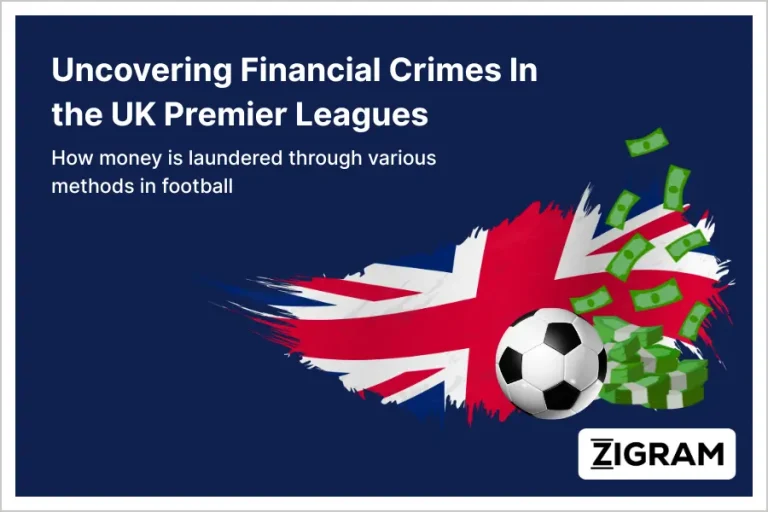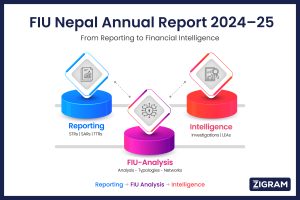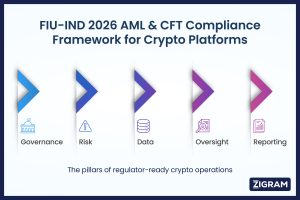Table of Contents
Football’s global riches make it a tempting target for financial crime. As one analyst notes, professional football – with its $470 billion industry value – is an “obvious candidate” for money laundering. Criminologists and regulators warn that complex cross-border transfers, multi-layered club ownership and opaque sponsorship deals all create opportunities for illicit money to flow through clubs. Transparency International cautions that fans “should be angry because … the English football system [is] vulnerable to funds from dubious origins and unsuitable owners”. In recent years, UK clubs from Premier League giants to lower-league sides have repeatedly made headlines in financial probes, exposing schemes like inflated transfer deals, offshore loan networks and tax-avoidance tricks. This investigation traces how those mechanisms work – and how authorities are responding.

Historical and Regulatory Context
The risk of crime in football finance is long-recognised. Two decades ago the FIFA corruption scandal laid bare how huge revenues for media and marketing rights could be corrupted. In 2019 the EU Commission formally labelled football an AML risk, and Europol warned that organised crime uses betting and transfers to generate “criminal income”. Yet until recently football largely escaped anti-money laundering (AML) laws. There were virtually no specific AML obligations on clubs, leaving sponsorships, agents’ fees and transfers under-regulated.
That has begun to change. The EU approved a new AML package in mid-2023 which, for the first time, brings professional clubs, agents and football associations within its regulatory perimeter. Under these rules (fully in force by 2029), European clubs must map their money flows, vet owners and sponsors, and report suspicious transactions – much as banks already do. UK football itself is outside EU law, but the British government has signalled parallel action. A proposed Independent Football Regulator (IFR) – currently in legislation – will require English clubs to prove financial viability and the provenance of owners’ funds, drawing on data from HM Revenue & Customs and the UK’s National Crime Agency. The new Economic Crime and Corporate Transparency Act 2023 also gives authorities stronger powers against corporate crime, which could eventually touch clubs.
Even before the formal rules, UK authorities have been active. HMRC has long targeted football tax dodges (see below), and in 2019 the Premier League agreed to beef up its owners’ and directors’ tests after the Saudi-backed Newcastle takeover and other high-profile sales. In early 2020 UEFA’s Financial Fair Play regime was tightened (though critics say loopholes remain), and the English FA and leagues periodically sanction clubs for “financial mismanagement” or profit-and-sustainability breaches. A 2021 UEFA directive removed the old caps on transfers and wages, but in parallel regulators worldwide have ramped up scrutiny of player movements and club finances. By late 2023, King’s Speech pledges promised new legislation “to safeguard the future of football clubs,” suggesting reforms aimed at the kind of problems explored below.
Mechanics of Financial Crime in Football
Clubs can be abused for illicit finance in several interconnected ways. At root are transfers, ownership and sponsorship deals that can be used to disguise origins of funds or evade taxes. Common tactics include overvaluing player transfers, secret offshore funding of clubs, and undervaluing or disguising agent and image-rights fees. In multi-club networks (common overseas), these become especially potent.
For money launderers, player trades are a “hydra of opportunities”. Law enforcement officers put it bluntly: “Players become tokens… The opportunity to launder money through football clubs is phenomenal.”. One method is over- and under-valuing transfers. For example, if the same investor controls two clubs, he can sell a player at an inflated fee from one club to another, effectively shifting value without raising outside suspicion. Chelsea’s transfer of Mamadou Sarr from France (Strasbourg) to Chelsea for €15m – immediately loaning him back – drew police interest as a case study of this pattern. (No laws are known to have been broken, but officials note how easy it would be to abuse.) Similarly, agents sitting on both sides of a deal can inflate a fee to skim cash out.
A related stratagem uses players’ pay as cover. Clubs may secretly overpay a player’s wages, then have him forward the surplus to a shady account. In one undercover case, investigators learned of transfers where “clubs pay an agreed salary [to a player] and then add an extra payment, which the players are instructed to transfer to shell companies based overseas”. In effect, the player’s contract hides a kickback. This echoes UN Office on Drugs and Crime findings: illicit funds from “corrupt player transfers often vanish into complex laundering schemes across several countries,” with money ending up in distant jurisdictions.
Clubs can also be vehicles for stashing illicit cash from outside football. A criminal owner or sponsor might inject dirty money into a club via loans or sponsorships, then later extract it as ostensibly legitimate profits. Many Premier League sides have hugely complex ownership structures often based in offshore havens. Studies find over half of PL clubs have at least one holding company in high-secrecy jurisdictions, and roughly 10% of shareholdings cannot be traced to a beneficial owner. Such opacity allows owners to hide their identity – as one owner boasted, he could “defeat the English Football League” by “manufactur[ing]” suitable paperwork.
A stark recent example involves Everton. The club’s majority owner Farhad Moshiri was found to have taken over £400 million from companies tied to Russian oligarch Alisher Usmanov between 2018 and 2022. Many of those companies were offshore, raising questions after Usmanov was sanctioned in 2022. (Moshiri claims he simply owes a debt and will repay from a planned sale of the club.) Another case: documents leaked in 2023 showed how Chelsea’s sanctioned ex-owner Roman Abramovich secretly made “tens of millions of pounds” in payments through offshore companies during his tenure. Those funds reached agents and even rival club executives, likely to conceal real costs from official accounts. UEFA fined Chelsea £8.6m for FFP breaches partly uncovered in that probe.
Offshore loans are also a red flag. For example, American investor Robert Platek’s group (BDT & MSD Partners) has loaned hundreds of millions to English clubs (Southampton, Burnley, West Ham etc). While not necessarily illicit, such loans can give outside parties undue influence over a club’s finances without formal ownership or accountability. Small clubs struggling financially have even attracted outright criminal investment: a syndicate reportedly tied to match-fixing and money laundering bought into a string of weak clubs via loans and stake purchases. In short, any financial pathway – transfer fees, loans, sponsorship or wages – can be rigged if the club’s financial controls are weak.
Tax Avoidance and Agents’ Fees
Clubs and players have long exploited tax loopholes, and UK authorities have cracked down hard in recent years. Typical schemes involve dual representation fees and image rights. In a dual representation scam, an agent acts for both the buying and selling clubs (or player), then splits his commission. HMRC says this is often a ruse: agents usually work mainly for the player, so the club’s half of the fee is really a bonus to the player, avoiding income tax and VAT. From 2024 HMRC demands proof that an agent genuinely works for a club in each transfer – otherwise the entire fee is taxed to the player.
The impact is clear in the numbers. HMRC reports that investigations opened between 2019 and 2024 have clawed back over £384 million in unpaid tax from football, including £67.5m in 2023-24 alone. By that date 20 clubs, 83 players and 21 agents were under inquiry. (For context, HMRC has brought in roughly £793m since 2015 from football-related cases.) Many cases arise from top-flight clubs failing to report agent fees correctly. UHY Hacker Young notes that “agent fees have long been a target for HMRC” as “very simple tax evasion,” and advises “everyone in football needs to be aware” of this scrutiny.
Other tax ploys include abusing image rights. Players often set up personal companies to collect image royalties, paying 25% corporation tax instead of their top 45% income tax. HMRC routinely investigates whether such companies have any real business or are mere shells. Even clubs and medical staff have been caught misclassifying employees as freelancers to dodge employer taxes (an IR35 issue). In lower leagues, dozens of clubs have fallen behind on VAT and corporation tax; several (e.g. Taunton Town, Chorley and Reading) even faced winding-up orders for unpaid bills.
Case Studies: Clubs and Owners Under Scrutiny
Chelsea FC (Abramovich era)
The club’s previous owner Roman Abramovich is a poster-child for hidden cash flows in football. Investigations by the Bureau of Investigative Journalism (linked with The Guardian and OCCRP) in late 2023 revealed that offshore vehicles controlled by Abramovich paid out “tens of millions of pounds” to football agents and third parties during the 2010s. These payments never appeared in Chelsea’s official accounts, raising suspicions that Abramovich was secretly financing transfers (such as Willian and Samuel Eto’o in 2013) outside the books. Experts say this likely helped Chelsea circumvent UEFA’s Financial Fair Play limits, allowing huge spending “at the expense of its rivals”. The revelations prompted further inquiries: UEFA fined the club £8.6m for undisclosed funding, and the Premier League launched an investigation into possible breaches. The Chelsea case has become a rallying cry for stricter checks – one EU lawmaker cited it as proof of “inherent risks” in football finance.
Everton FC (Moshiri/Usmanov)
In 2023 The Guardian broke a story exposing Farhad Moshiri’s financing of Everton via oligarch funds. According to leaked records, Moshiri borrowed £145m from an Usmanov-controlled company and effectively received £270m in what appeared to be free shares between 2018 and 2022. Put together, Everton’s owner pocketed over £400m from Usmanov-linked entities. This raised eyebrows because Usmanov was under UK sanctions, meaning any money transfers involving him were supposed to be blocked. To Everton supporters, the timing is ominous: Moshiri announced a tentative sale of the club to US firm 777 Partners just days after the Guardian exposé. Everton’s chain of funding now faces questions: where did the money ultimately come from, and how was it used by the club?
Sheffield United (Dozy Mmobuosi)
In late 2023 the English press reported that Sheffield United nearly had a new owner with very dubious credentials. Dozy Mmobuosi, a Nigerian entrepreneur who had shown interest in buying the Blades, was indicted by the US Securities & Exchange Commission (SEC) for a “staggering” multi-year fraud involving falsified mobile-phone companies. The SEC alleges he inflated revenues into hundreds of millions and then “looted” company funds into luxury cars, jets – and to pay for his proposed £100m Sheffield takeover. In court filings, regulators explicitly tie tens of millions of pounds to funding that attempted purchase. Sheffield’s chairman told the EFL he had received evidence of these schemes, which ultimately doomed the sale. This high-profile scare reinforced concerns that football’s approval process can attract serious fraudsters. A year earlier, an Al Jazeera undercover video had dramatized this point: a fixer boasted he could hide a criminal’s identity behind offshore trusts to pass the EFL’s owner test.
Fleetwood Town (Andy Pilley)
Outside the Premier League, English football has seen concrete court cases implicating club owners. In July 2023, Fleetwood Town’s chairman Andy Pilley was sentenced to 13 years for defrauding small businesses of £15m via fake energy contracts. Pilley owned multiple clubs (including Fleetwood, Wigan and others in Britain and Ireland), but his crimes were in an unrelated industry. Still, the judge noted the fraud was a “sordid tale of lies, greed and fraud”. Fleetwood and the EFL were quick to say the club itself was not responsible and would cooperate with authorities, but the saga highlights how football teams can get caught up in owners’ schemes. Andy Pilley’s case is a reminder that laundering isn’t the only risk; even ordinary fraudsters find sports clubs attractive fronts, whether knowingly or not.
Other examples
Reading FC, once a Premier League team, provides a cautionary tale of opaque ownership and mismanagement. Fans watched their club “dying … before [their] eyes” under current Chinese owner Dai Yongge, amid massive debt and administrative collapse. Investigations continue into whether funds were improperly funneled or conceal losses, as Reading faces winding-up orders. In the Championship and below, cases have emerged of suspicious sponsorships: a 2023 UNODC report found eight Premier League clubs using Asian-facing gambling sponsors who all license through one firm linked to convicted underground bookmaker Alvin Chau. Chau led a vast Southeast Asian betting ring tied to money laundering and tax evasion, raising alarms about tainted sponsorship revenue ending up in top-level football. (Clubs themselves are rarely accused of wrongdoing in these deals, but the lack of checks on sponsor legitimacy is seen as a vulnerability.)
Responses from Football Authorities and Law Enforcement
The spotlight on football’s financial dark arts has forced action from regulators and governing bodies. HMRC’s football taskforce is most visible: its years-long crackdown has opened inquiries into dozens of clubs, agents and players, and in 2024 alone led to £67.5m in recovered taxes. HMRC publicly states that “the football industry [is] an obvious target for collecting unpaid tax”. The new guidelines on agents’ fees (May 2024) followed years of HMRC warnings. Even first-time homeowners in football, like Manchester City or Arsenal, have had to disclose their finances to HMRC after focus fell on donor networks.
Law enforcement also appears to be taking the threat seriously. British agencies, often working with EU partners, have launched operations. For instance, in 2017 French and UK authorities jointly raided the offices of Newcastle United and West Ham over alleged tax fraud in transfer deals. In 2023, reports emerged of Metropolitan Police and the National Crime Agency probing multi-club ownership networks and transfers – although details are scant. European-wide, Interpol and national units have quietly investigated cases of match-fixing rings that sometimes intersect with laundering schemes, and confiscated players’ accounts in known cocaine gangs (the EncroChat busts revealed some footballers as unwitting couriers).
The Premier League itself has tightened its registration rules. It requires owners and directors to prove the source of funding, and recently reminded clubs that fraudulent transfer deals (such as sham swap deals) could lead to sanctions. When information surfaced that Chelsea under Abramovich had made improper financial disclosures, the Premier League asked the club for details; a failure or misstatement could in theory mean points deductions under league rules (though no such drastic steps have been taken yet). Similarly, the FA and EFL have the power to penalize clubs for breaching financial regulations; they have used this for Financial Fair Play issues but have not yet targeted money laundering specifically.
On the political front, UK policymakers are discussing new laws. The pending Football Governance Bill aims to establish the Independent Football Regulator, which could demand transparency on owners, sponsorships and money flows. Lawmakers have pointed to recent scandals (Abramovich’s off-book deals, 777 Partners allegations, etc.) as justification for tightening oversight. The new UK National Risk Assessment on money laundering (due in 2024) is expected to identify football as a high-risk sector, possibly extending AML regulations to clubs. Internationally, the EU’s move to classify clubs as obliged entities by 2024 has been noted; while the UK is no longer in the EU, UK clubs that do cross-border business may voluntarily adopt similar compliance measures to avoid being shut out of European competitions.
Experts and investigators emphasize that data and vigilance are key. Financial auditors like Kieran Maguire argue that if a club is found laundering money or hiding payments, penalties (including points deductions or forced sales) must be severe enough to deter abuse. Transparency campaigners urge football authorities to demand disclosure of ultimate beneficial owners (UBOs) and vet any suspicious investors. For now, many smaller clubs have no AML programs at all, and even top clubs admit they need to improve. As one law enforcement official told Play the Game, football’s regulatory gap is “a festering sore” that criminals are exploiting.
Conclusion and Implications
Football’s money-laundering vulnerabilities are by now well-documented: from tax-avoidance by star players to multi-million pound “phantom” transfers and opaque ownership. Cases from Barcelona to Benficá to Fluminense have shown it is a global problem, and the UK is no exception. As one commentator puts it, banking regulations brought casinos and art into the AML net; now football must face the same scrutiny. The scale of the issue – with billions at stake – means crackdowns will be ongoing.
For fans and legitimate investors, the stakes are high. Money-laundering scandals can sink clubs: imagine a team plunged into administration or forced sale because it unwittingly became a criminal’s piggy bank. Long-term, supporters and sponsors may demand that football clean up its act. Meanwhile, clubs will need to beef up their own controls: implementing robust internal AML checks and insisting on clean money from owners and partners. The new regulations on the horizon mean clubs will have to treat large deals and foreign funding like any bank would: with careful due diligence.
No quick fix exists. A RUSI commentator observes that enforcement agencies worldwide are under-resourced, and adding football to their remit may be “a worthy but ultimately fruitless exercise” unless seriously funded. Even so, authorities are giving football a red card – insisting on transparency that the game has long resisted. If football clubs fail to act, governments may one day enforce compliance by law. The beautiful game’s governing bodies have quietly acknowledged this: the next few years will tell whether reform can keep pace with the shadow networks that lurk behind the scenes.
Sources
Money Laundering in Football: The Not So Beautiful Game? | Royal United Services Institute
Investigation reveals how football can be used to launder money | Investigation News | Al Jazeera
A Red Card for Financial Crime: New AML Regulations Set to Clean up Football, Connor Delaney
Money Laundering in Football: The Not So Beautiful Game? | Royal United Services Institute
A Red Card for Financial Crime: New AML Regulations Set to Clean up Football, Connor Delaney
The hidden webs of multi-club ownership leave football exposed to crime
Investigation reveals how football can be used to launder money | Investigation News | Al Jazeera
EU’s plan for money-laundering checks on football inflamed by Chelsea claims | Euronews
Abramovich’s hidden football deals during Chelsea’s time at… | TBIJ
Football v HMRC: Scrutiny sees £400m clawed back from clubs
EU’s plan for money-laundering checks on football inflamed by Chelsea claims | Euronews
Investigation reveals how football can be used to launder money | Investigation News | Al Jazeera
Money Laundering in Football: The Not So Beautiful Game? | Royal United Services Institute
Owner of Portsmouth’s League One rivals sentenced to 13 years in prison for £15m fraud
Money Laundering in Football: The Not So Beautiful Game? | Royal United Services Institute
English Soccer Clubs Raided in US$6.5 million Fraud Investigation | OCCRP
Money Laundering Through Football – Sanction Scanner
Money Laundering in Football: The Not So Beautiful Game? | Royal United Services Institute
Abramovich’s hidden football deals during Chelsea’s time at… | TBIJ
Money Laundering in Football: The Not So Beautiful Game? | Royal United Services Institute
- #UK
- #Football
- #MoneyLaundring
- #FinancialCrime
- #Compliance







